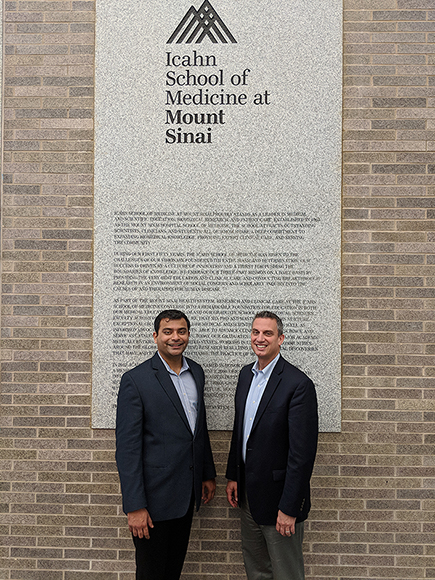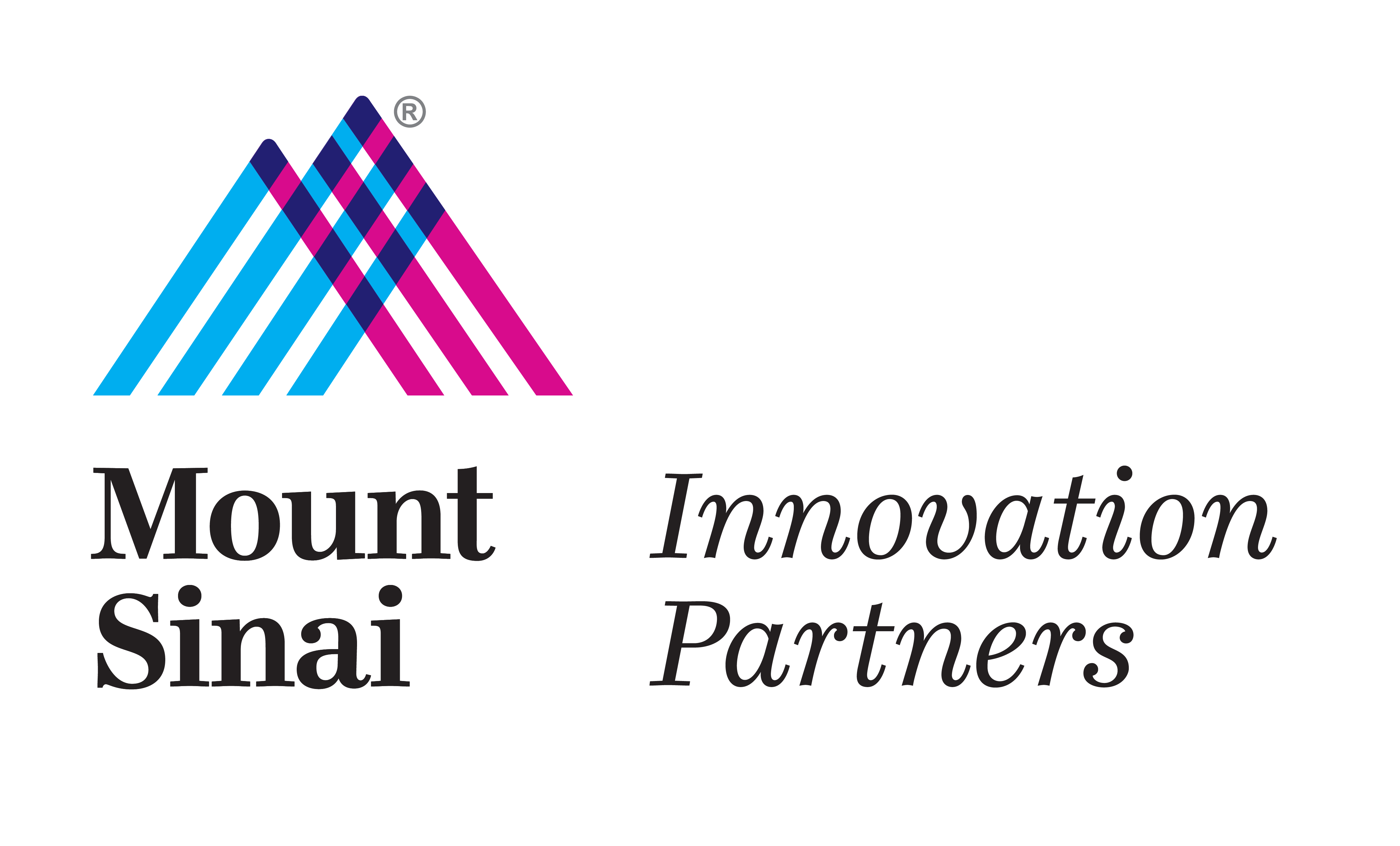The Pioneers of Kidney Disease Prevention: Meet Mount Sinai Nephrologists Steven Coca and Girish Nadkarni
June 25, 2018
As colleagues in Mount Sinai’s Division of Nephrology, Steven Coca, DO, MS and Girish Nadkarni, MD, MPH share a mutual passion for revolutionizing chronic kidney disease management on a global scale. Drs. Coca and Nadkarni are the co-inventors of KidneyTrackTM, an artificial intelligence (AI)-based platform that predicts the risk for progressive chronic kidney disease and is paired with suggestions for optimized preventive treatment and management options for patients deemed to be high-risk.
This discovery paved the way for an agreement between the Icahn School of Medicine at Mount Sinai (ISMMS) and RenalytixAI, an AI company co-founded by Coca and Nadkarni, to utilize de-identified electronic patient data from the Mount Sinai Health System to change the way physicians manage patients at high risk for progressive kidney disease. ISMMS and RenalytixAI will partner with several other academic institutions who will serve as Centers of Excellence for the initial phase of deployment. Barbara Murphy, MD, Dean for Clinical Integration and Population Health Management and Chair for the Department of Medicine at ISMMS, will serve as Chair of the Scientific Advisory Board, with Coca and Nadkarni participating as members.
“We’re using multi-dimensional data to assess the kidney health of a patient,” Nadkarni said. “The more dimensions we use in our assessments, the better the current picture of the patient’s kidney health, and the more information you can get for predicting risk of decline in the future.”
KidneyTrackTM offers real-time data updates for patients diagnosed with, or at risk of developing, kidney disease, using novel blood biomarkers studied in several patient cohorts by Coca and Nadkarni, as well as genetic information and longitudinal clinical data. Through the utilization of an algorithm-derived ‘scoring’ system, the biomarkers, genotype and clinical data are used to predict the probability of kidney function decline approximately five years before the disease progresses.
“The biomarkers give a prognostic look into the future trajectory of the kidney’s function at a time when things can look normal to a practitioner,” Coca said. “KidneyTrackTM will be dynamic over time, so every time the patients have an interaction with their healthcare provider, their score will update, serving as a significant indicator for the risk of progression, and a potential motivator for lifestyle, dietary, medication and behavioral changes.”
This technology also brings major financial benefits to institutions and the healthcare system by potentially decreasing the number of patients on dialysis. According to Coca and Nadkarni, 7% of the United States Medicare budget is spent on dialysis, equaling about $33.9 billion a year. Resources and costs will also be saved as less patients progress to more advanced chronic kidney disease stages.
“Patients often ask ‘why didn’t anyone warn me?’ There is a general lack of awareness on the part of both patients and providers regarding chronic kidney disease and there hasn’t been enough focus and resources in preventing it,” Coca said.
The initial phase will focus on patients of African ancestry and those with Type 2 diabetes, the highest-risk populations at risk for kidney disease. Coca and Nadkarni plan to implement their study that assesses the impact and real-life utility across the Centers of Excellence by the beginning of 2019.
“Using comprehensive data from so many patients, we can make a difference in people’s lives,” Nadkarni said. “We can now look at associations and relationships that were not possible before at this scale and change the paradigm.”

